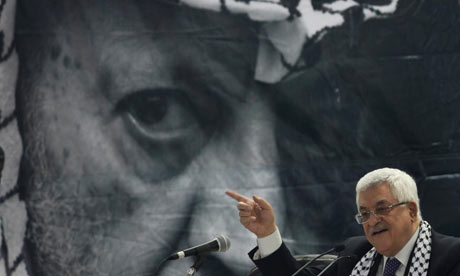
No where to go...
If you thought the humanitarian situation in Gaza could not get any worse, think again. After a three year-old Israeli blockade on the movement of people and goods to and from the densley-populated Palestinian Strip, and a devastating military campaign by the Israeli Defense Forces in late 2008, the life of ordinary Gazans is about to become even harder. When Hamas ousted Fatah officials from Gaza, supposedly to preempt a Fatah coup, Israel imposed a harsh blockade that was meant to drive the besieged population to depose Hamas. As usually is the case with sanctions, the average citizen comes to bear the brunt of adverse living conditions while the regime remains in power virtually intact. The blockade largely restricted average Gazans' access to vital medical supplies, fresh vegetables, livestock, clean water, gas, etc. Poverty and unemployment became the unchosen lifestyle of about half of the 1.5 million residents of the Strip. Confronted with these conditions, Gaza's only lifeline became the scarce goods that Tel Aviv does, in fact, permit into the territory, and the flourishing business of tunnel smuggling. According to the smugglers' own estimates, they deliver approximately 60 percent of Gaza's material needs from the Egyptian side of the border.
To be sure, Israel is not the only party to blame for the plight of Gaza. The Fatah-Hamas chasm has Ramallah hoping for the collapse of Hamas' rule in Gaza at any expense. Hamas, on its part, recently rejected a deal that would have paved the road for reconciliation, as it sits back and watches the ever-declining popularity of Palestinian Authority President Mahmoud Abbass. Yet, it is Egypt that deserves singling out for its collaboration with Israel in enforcing the blockade on Gaza.
When Israel waged its latest war on Gaza, President Hosni Mubarak made it abundantly clear he was going to neither allow refugees to escape the war by crossing the border into Egypt, nor allow goods to be transferred into the beleaguered territory. His decision aimed to accomplish three objectives. First, he sought to prevent the establishment of potentially permanent refugee camps in Sinai, a la Lebanon. Second, Mubarak, no fan of Islamist movements, was also hoping for the downfall of Hamas. Third, Cairo wished to present itself as a useful ally for the United States whose blessing of the armed campaign was implicit.
The above-stated goals are very much the cornerstones of Egypt's relentless campaign since to crackdown on smugglers and its latest decision to construct a steel wall along the borders with Gaza. As news emerged that Egypt was in the process of building a 10-14 kilometer long, 30 meters deep steel wall along the border with Gaza, the Palestinian Strip morphed into panic mode. Long lines formed before gas stations, and citizens started stocking whatever food is available in the markets. Demonstrations along the border broke out almost instantly after the news of the wall broke out.
Hamas reacted angrily by renouncing the French-American-Egyptian plot to further besiege Gaza. Hamas-controlled Palestinian Legislative Council called issued a statement expressing its desire for Egypt to be tried before the International Court of Justice. PA President Mahmoud Abbass, however, emphasized Egypt's sovereign right in building the wall. Egyptian foreign ministry spokesman warned against intervening in matters concerning Egypt's national security.
Egypt's decision to tighten the blockade on Gaza would prove catastrophic to Cairo for three reasons. First, Egyptian and Arab public opinion is going to turn even more sharply against the Egyptian regime. Second, Egypt's erstwhile diplomatic clout in the region would be reduced to a relic of the past. Without credibility on the Arab-Israeli conflict, Cairo would find it increasingly difficult to exercise influence beyond its borders. Syria, Qatar, Turkey and Iran are already filling that vacuum. Third, by enlisting Abbass in defending this project, Fatah becomes further discredited and de-legitimized amongst Palestinians. Finally, Egypt is making herself part of a conflict in which she does not need to be. There are no overriding national security concerns in Egypt to warrant this action. The building of this wall would pit Cairo in a direct, and unnecessary, enmity with Hamas (and potentially the Gazan population).
The steel wall would not end Hamas' rule in Gaza. It is possible that the Mubarak regime pursues this policy to ensure Washington's support for Gamal succeeding his father at the helm of Egypt in 2011. It is also possible it is a desperate attmept to pressure Tehran. Whatever the goals, they are unlikely to be achieved. Even worse, as the world marked the twentieth anniversary of the deconstruction of the Berlin Wall, Egypt follows Israel's lead in building yet another wall surrounding the Palestinian people.














